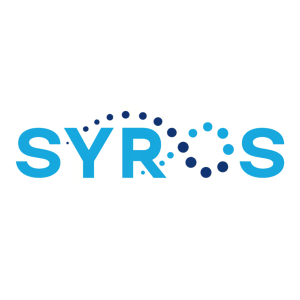Syros Receives Fast Track Designation from the FDA for Tamibarotene for the Treatment of Newly Diagnosed Unfit AML with RARA gene overexpression
“We are pleased to receive Fast Track designation for tamibarotene for the treatment of AML. This designation reflects the tremendous need for a safe and effective therapy, which can improve the clinical outcomes and prognosis among people diagnosed with AML, many of whom cannot tolerate intensive treatment,” said David A. Roth, M.D., Chief Medical Officer of Syros Pharmaceuticals. “We are particularly encouraged to secure Fast Track designation following initial randomized data from a prespecified interim analysis of our ongoing SELECT-AML-1 clinical trial, in which treatment with our RARα agonist, tamibarotene, in combination with venetoclax and azacitidine resulted in a
Fast Track is a process designed by the FDA to facilitate the development and expedite the review of drug candidates intended to treat serious conditions and for which nonclinical or clinical data demonstrate the potential to address unmet medical need. The purpose is to facilitate development and expedite review of drugs to treat serious and life-threatening conditions, to bring the approved products to patients earlier. A therapeutic candidate that receives Fast Track designation may be eligible for more frequent interactions with the FDA to discuss the therapeutic candidate’s development plan. Therapeutic candidates with Fast Track designation may also be eligible for priority review and accelerated approval if supported by clinical data.
Syros is evaluating tamibarotene in combination with venetoclax and azacitidine in newly diagnosed, unfit AML patients with RARA overexpression in the ongoing SELECT-AML-1 Phase 2 trial. In December 2023, Syros announced initial randomized data from SELECT-AML-1, demonstrating a
Syros is also evaluating tamibarotene in combination with azacitidine in newly diagnosed higher-risk myelodysplastic syndrome (MDS) patients with RARA overexpression in the SELECT-MDS-1 Phase 3 trial. As recently announced, enrollment to support the pivotal primary efficacy analysis was completed in the first quarter of 2024, and pivotal complete response data is expected by the middle of the fourth quarter of 2024. In January 2023, the FDA granted Fast Track Designation to tamibarotene for the treatment of HR-MDS patients with RARA overexpression.
About Syros Pharmaceuticals
Syros is committed to developing new standards of care for the frontline treatment of patients with hematologic malignancies. Driven by the motivation to help patients with blood disorders that have largely eluded other targeted approaches, Syros is developing tamibarotene, an oral selective RARα agonist in frontline patients with higher-risk myelodysplastic syndrome and acute myeloid leukemia with RARA gene overexpression. For more information, visit www.syros.com and follow us on Twitter (@SyrosPharma) and LinkedIn.
Cautionary Note Regarding Forward-Looking Statements
This press release contains forward-looking statements within the meaning of The Private Securities Litigation Reform Act of 1995, including without limitation statements regarding Syros’ clinical development plans, the timing to report clinical data, the ability to commercialize tamibarotene and deliver benefit to patients, and the potential benefits of receiving Fast Track designation. The words “anticipate,” “believe,” “continue,” “could,” “estimate,” “expect,” “hope,” “intend,” “may,” “plan,” “potential,” “predict,” “project,” “target,” “should,” “would,” and similar expressions are intended to identify forward-looking statements, although not all forward-looking statements contain these identifying words. Actual results or events could differ materially from the plans, intentions and expectations disclosed in these forward-looking statements as a result of various important factors, including Syros’ ability to: advance the development of its programs under the timelines it projects in current and future clinical trials; demonstrate in any current and future clinical trials the requisite safety, efficacy and combinability of its drug candidates; sustain the response rates and durability of response seen to date with its drug candidates; successfully develop a companion diagnostic test to identify patients with the RARA biomarker; obtain and maintain patent protection for its drug candidates and the freedom to operate under third party intellectual property; obtain and maintain necessary regulatory approvals; identify, enter into and maintain collaboration agreements with third parties; manage competition; manage expenses; raise the substantial additional capital needed to achieve its business objectives; attract and retain qualified personnel; and successfully execute on its business strategies; risks described under the caption “Risk Factors” in Syros’ Annual Report on Form 10-K for the year ended December 31, 2023, which is on file with the Securities and Exchange Commission; and risks described in other filings that Syros makes with the Securities and Exchange Commission in the future.
View source version on businesswire.com: https://www.businesswire.com/news/home/20240409254657/en/
Syros
Karen Hunady
Director of Corporate Communications & Investor Relations
1-857-327-7321
khunady@syros.com
Investor
Hannah Deresiewicz
Stern Investor Relations, Inc.
212-362-1200
hannah.deresiewicz@sternir.com
Source: Syros Pharmaceuticals







